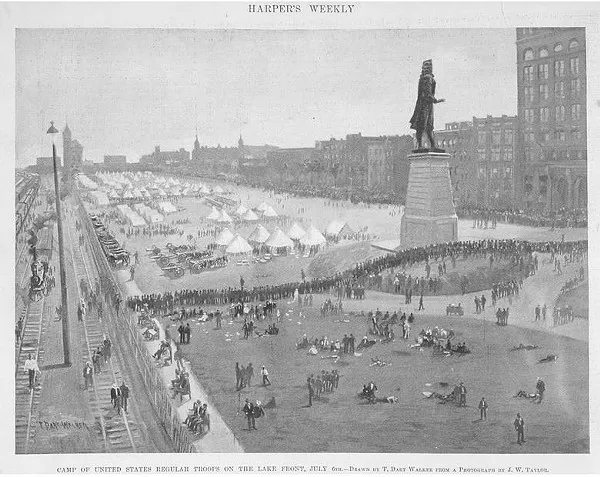
- Harper's Weekly, July 21, 1894
- Some 6,000 federal and state troops, 3,100 police, and 5,000 deputy marshals hit the streets of Chicago in July 1894.
To sum up: The holiday we celebrate during this long weekend is about workers and their rights, not about whether or not it's reasonable to wear white, drink beer or attend wet T-shirt contests — it really has nothing at all to do with summer.
The 119-year-old Labor Day commemoration is, according to the U.S. Department of Labor, "a yearly national tribute to the contributions workers have made to the strength, prosperity, and well-being of our country."
What the government's webpage doesn't discuss, however, is that the holiday only became widely accepted in the mid-1890s after the U.S. Military and U.S. Marshalls killed 34 protesters during the violent Pullman Strike that began in Chicago in 1894. It was in response to wage cuts and other ridiculousness at the hands of a robber baron who was so hated by workers that, after he died years later, his family buried his dead body extra deep in steel-reinforced concrete so his body wouldn't be desecrated.
And you thought you hated your boss.
In related news, and as one tiny example of how labor issues aren't a thing of the past, check out this Brave New Foundation video, "Meet the new American sweatshop," about car washes in Los Angeles:
